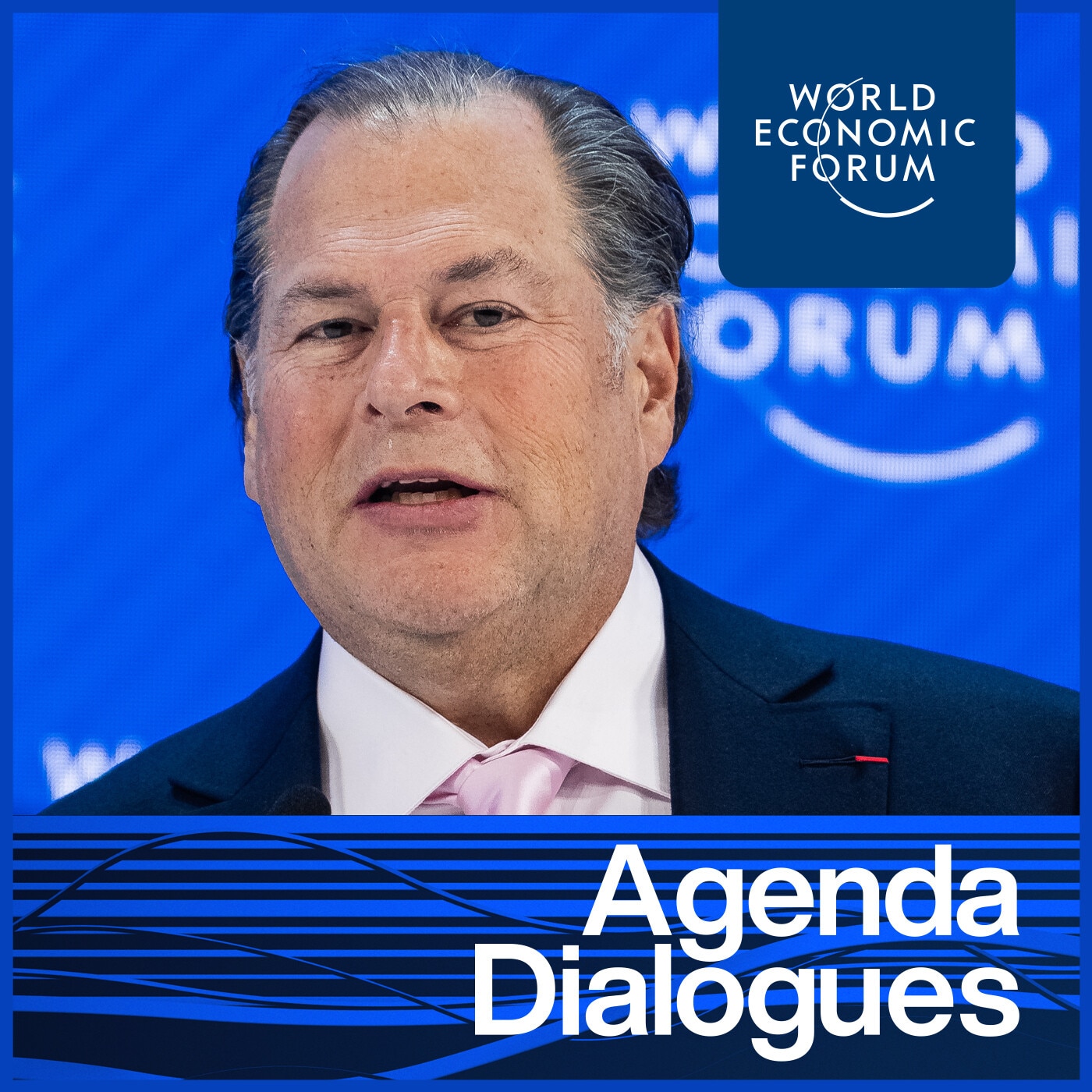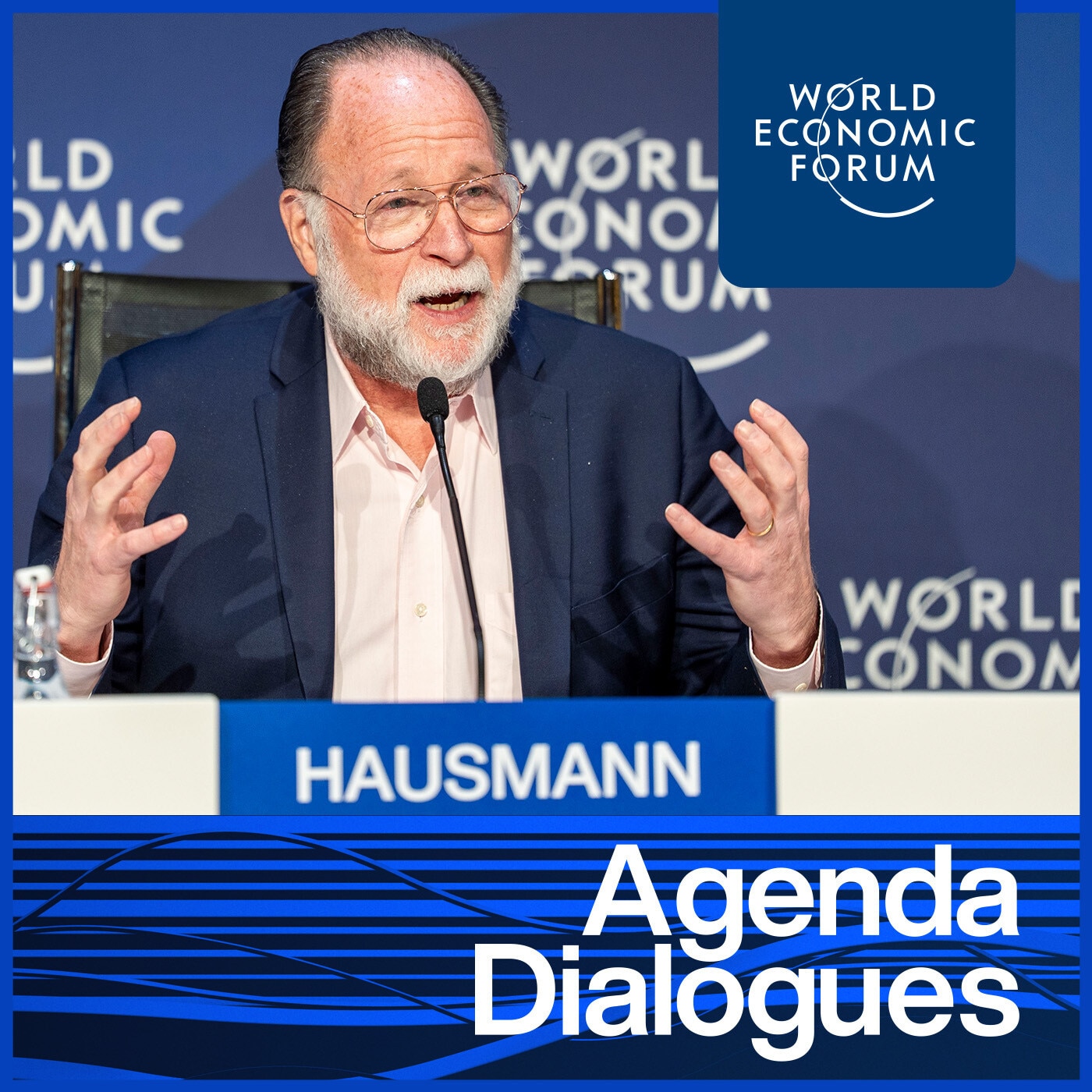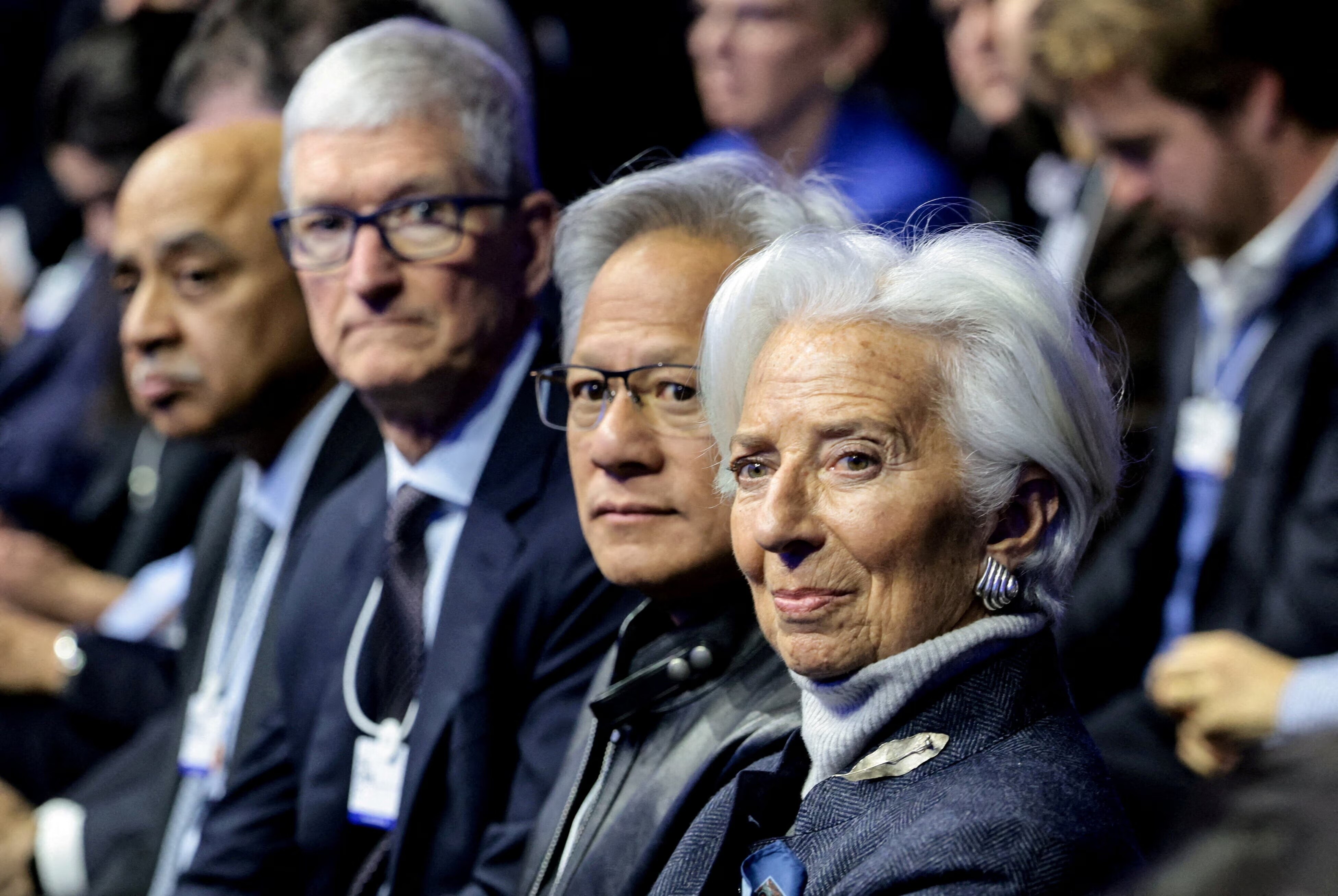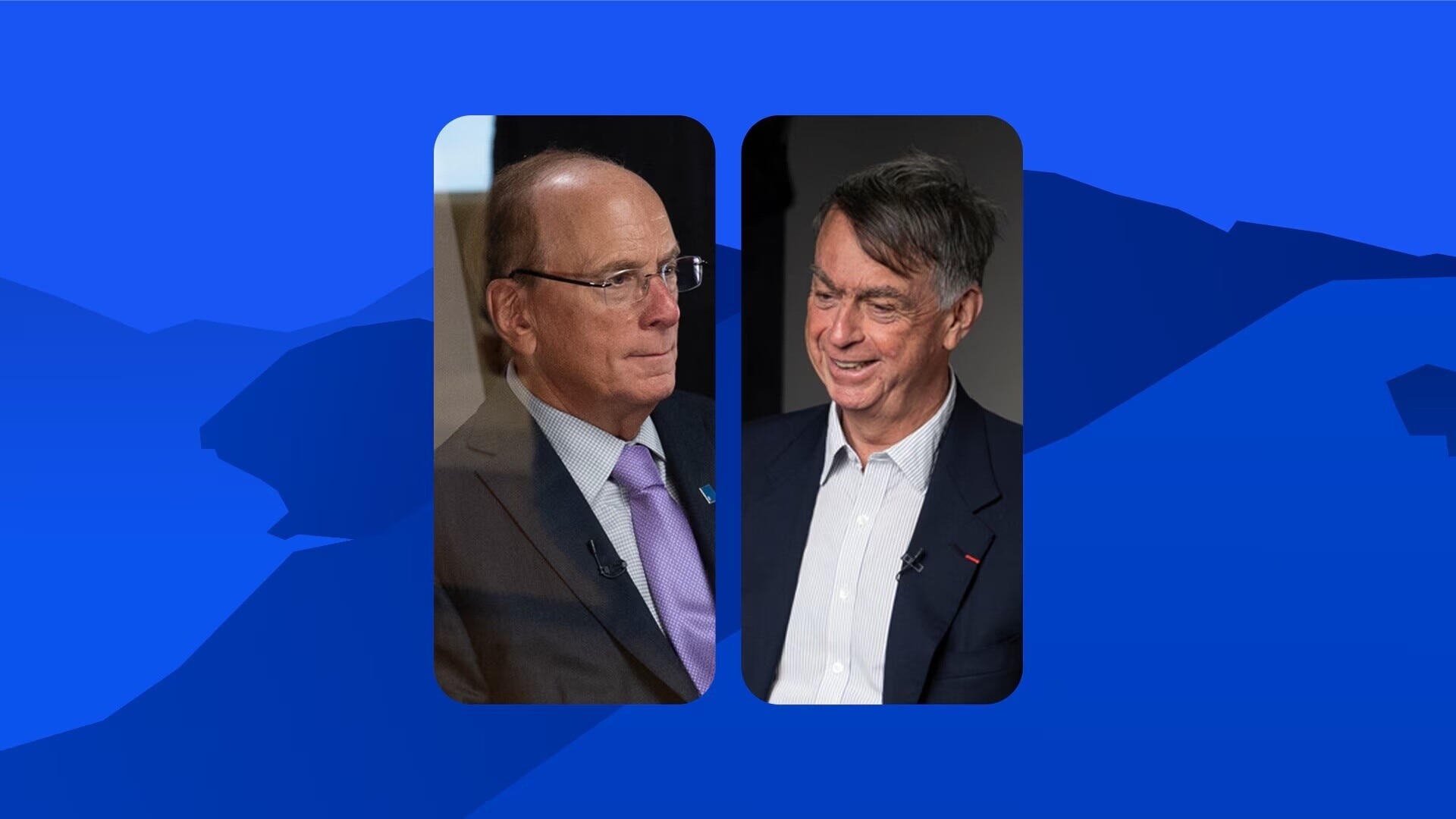SDIM23: Accelerating Progress on Gender Parity
Transcripción del podcast
This transcript has been generated using speech recognition software and may contain errors. Please check its accuracy against the audio.
Keir Simmons, Chief International Correspondent, NBC News: Well, what a fantastic group of people I have with me here for a really great conversation for the next 45 minutes. Thanks very much for joining us. Let me just start with a few thoughts before we get under way.
And I don't want to start from a negative perspective, but I think it's helpful to set the tone. Folks watching, if you're watching this, you very likely know that there is something called the Global Gender Gap Index. Now, this is a survey of 146 countries, it's its 17th survey this year and this year it found that there was a 0.3% improvement since last year, not 3%, 0.3% – 4.1% since the first edition back in 2006.
¿Has leído?
SDIM23: Everything you need to know about Day 3
Global Gender Gap Report 2023: More women are leading in Latin America, but progress still needed
From achieving gender parity to harnessing AI for better jobs: here are 5 key takeaways from SDIM23
Gender equality: a call to action beyond the G20 New Delhi Summit
So on the face of it, it appears that all of our efforts to try to address the unfair imbalance between women and men around the world are not having a good enough effect, at least not in the working world. And that survey suggests that we are 131 years away from full parity. And I was thinking about this, and you may be wondering, watching why a man is hosting a panel like this.
And I was thinking about this and I look at that number, 130 years. I have two daughters, twins, and they're 11 years old. And I thought, wow, my daughters will never see gender parity. But wait a second, 130 years... my daughters, daughters, my granddaughters, if I have them, will never see gender parity.
And then I thought 130 years. I think that means that if my daughters have daughters and then they have daughters, my great granddaughters may even, in the least in their working life, never see gender parity. And that is a challenge. That is an issue.
If you've got something to say about this, we want you to get on social media. Everybody says this these days and you can use the hashtag #SDIM23 to make some comments and join the conversation. But let me introduce the folks here who are going to have the conversation with us today. Sitting next to me is Reshma Saujani, Founder and CEO of Moms First. Right. Great. Thierry Déau, who is from Meridiam. And next to him, Clare Akamanzi, who is from the Rwanda Development Board. And next to her, Randall Tucker from Mastercard.
Reshma, let's begin with you, because that was a negative way to start, right? And you're all about the positive. So what are the positives about what you're doing and what you're trying to achieve and what you're seeing out there?
Reshma Saujani, Founder and Chief Executive Officer, Moms First: I mean, I think the positive is that we've learned that progress isn't linear, right? That there's going to be bumps in the road and I think allows us ... we're just coming out of meeting on this and the parity report thinking about, well, what does the future look like? You know, how do we have an ambitious goal from what we've learned?
And I'll tell you this. You know, I spent 10 years of my life building an organization called Girls Who Code, you know, closing the STEM gap, teaching over 600,000 girls, reaching over millions. And, you know, when we started in the pandemic, I thought we had a treat, you know, achieved equality. You know, for the first time, our labour force, the vast majority, were women. And when the pandemic hit, you know, it really showcased the fact that women across the globe do two-thirds of the caregiving work while they're maintaining their full-time jobs. And so if you have a broken structure of care, if you don't, when day-care centres were shut down and schools were shut down, everything fell apart.
And millions of women in the United States and across the world are pushed out of the workforce. And I think what we learned here in the United States that there were key things, key structural changes that we had not made in our march towards equality, that have impeded our progress. And so one that's paid leave. The United States is the only industrialized nation that doesn't have paid leave, so one out of four mums go back to work two weeks after having a baby.
Second, affordable child care. You know, we're the wealthiest nation that puts the least into childcare. So 40% of parents are in debt because of the cost of childcare. Pay equity. The reason why we have a pay gap is because for dads, every time they have a child, they make 6% more. For women, every time they have a baby, they lose 4% of their salary. So it really shone a light on so many of us who are doing this work, saying, you know, this is about structural change. You know, we have to focus on structural change if we actually want to be free.
And I think women leaders across the globe are having... I mean, we knew this, but we're taking a conversation in many ways that has about care, that has been in the margins and bringing it to the mainstream. We're taking a conversation about care that's always been seen in this social light to your personal problem to fix it, putting it in an economic light. And having conversations about the billions, if not trillions of dollars that were missing from the economy, because most women work to work.
Keir Simmons: Yeah. The point being, actually, there are economic benefits to addressing the issue of getting women to live their best lives, their fullest lives, as well as families.
Reshma Saujani: I mean, when you have labour shortages and tight labour markets across the globe, it's because you don't have the full participation rate and you don't have the full participation of women in the labour market.
Keir Simmons: Yeah. One of the things I think is important for us to talk about here, there's going to be two aspects to this. That's going to be the big picture and then there are going to be the individual cases, and the fact that actually people have different experiences in different places, different families, even. From the Rwanda side, What are the specifics? One of the women talked about the US, what's the Rwanda picture, if you like, and what do you think that tells us around the world about what we need to address here?
Clare Akamanzi, Chief Executive Officer, Rwanda Development Board (RDB): Thank you for first of all, I don't think we have to wait 131 years, because all of us are doing our part to reduce those 131 years. When I look at Rwanda's case, we don't have 131 years. Today Rwanda is ranked among the top countries in the world when it comes to gender parity. We are always ranked among sometimes top five, sometimes within the top 10, in the world.
But what did it take for one to truly to treat that level of parity? I think one important aspect is that deliberate leadership for gender inclusion is important. Leadership that is deliberately making sure that gender inclusiveness happens and that requires people actually making sure it happened. It's not going to happen on its own.
If you're a leader, if you're a president of a country like my president, very clear about gender equality. He'll make sure when he's appointing cabinet, women are represented. He'll make sure when he's appointing board members, women are included. CEOs of companies should do the same. Mayors should do the same. Deliberate leadership to ensure inclusion is important.
I like to tell an anecdote of my president. Once he told us a story how people who he asks to give him names for appointment would tell him, 'I can't find women'. And he would say, 'Fine, I'm not in a hurry. Whenever the women show up, I make the appointment.' And women showed up the following day, because they're there. Right? Somebody just has to be very deliberate about including them. That's one.
Two, I think being innovative about how we solve real challenges. Some of the challenges that Reshma talked about, one of them was paid leave, for example. In Rwanda, we came up with an innovation, something that we call the Maternity Solidarity Fund, because employers were discouraged from employing women, especially young women. Africa has a very young continent – almost everybody is below 30, so they're going to be taking maternity leave a lot. So employers were discouraged because they have to pay a net, replace somebody when they go on maternity leave.
So what the government did is work with a pension fund to come up with a mandatory contribution to a solidarity fund. Whether you're anyone who works – man, woman, 60 or 20, as long as you're working – you contribute a percentage of your salary to the fund, and that fund comes in to pay whoever goes on maternity leave. That was a really good way to address the issue of paid leave, and I think we should be innovative about that.
The last point I want to say is that, okay, you have leadership, you have all these policies of innovation that is including. What's important also to monitor progress. In Rwanda, we've set up something called the Gender Monitoring Office. Their job is to just monitor gender. Are you having enough inclusion in the mayor's office? Is the central bank having enough inclusion? Is the budgeting process including ways to address gender gaps? Somebody who's just monitoring and reminding everybody that you have to keep the policy on board. I think that's important as well.
Keir Simmons: Yeah. Thierry, you spend your time, you spend your time... you're going to disagree with the way that I frame what you do, okay? So I'm ready for that. You spend your time persuading people that positive ideas like this actually are even beneficial in investment terms. Rights? So there's a case – and Reshma already talked a bit about it – there's a case for why actually, this is not just good for society, not just good for women and the people who are around women, us guys, but also actually has economic benefits and investment benefits.
Thierry Déau, Chief Executive Officer, Meridiam: I mean, indeed, it's beneficial on two levels. For companies not having women inclusion is a loss, is a loss in talent, is a loss in in many things in efficiency.
Keir Simmons: And it's not just because you need the people? Or is it also because of the perspective that women bring, do you think?
Thierry Déau: It is both. They are different talents. You also need the workforce and the inclusion.
Keir Simmons: Yeah, and in many countries where you have an issue with it, just aren't there aren't enough people in the workforce and increasingly so.
Thierry Déau: Yeah, there aren't enough people. I come from an industry, both financial industry where I was an investment manager in infrastructure, sustainable infrastructure. So we need people with a science background, engineering background, with financial background. This is almost like finding an egg in a big farm. It's really difficult and clearly bringing those talents, and especially women, to this type of of workforce is is very difficult.
So it takes commitment, and in 10 years in an industry where we have probably 10% women participation, we have 35%. But it took commitment from hiring intern massively women all the way to programmes within the company to support them through their careers, through their maternity, applying, for example, the best roles that we may have in France on paid leave, including we do it in the US, we do it in our African offices, we do it in Turkey, and having the sort of highest level of support for women to develop their career and to manage their lives. Because, you know, maternity is not something that is very simple and coming back is not something that is very simple, so you have to be aware of that. And clearly these programmes have allowed us to really move the participation of women.
There are different talents and I think when I think about gender parity, I think it's also acknowledging the differences and it's true for all kinds of inclusion, it's also true for for racial inclusion. There are differences. We all equal, but there are differences. And those differences are positive contribution to what you're trying to to to achieve.
And our investors, when we think about inclusion – and we are a benefit corporation, by the way, and one of our pillars is inclusion, and especially women inclusion – our investors see the benefit for their long-term investment in our funds to have this positive impact as a good risk mitigation and a positive contributor to the volatility of our investment. When you invest in public infrastructure like ourselves, the positive contribution that you bring to communities in this way – for example, all our assets, we have a mandatory sort of obligation for these to have women, equity pay, hiring women at the high level positions – it reflects on the community. And that asset where you have a long-term contract with government is usually less challenged by the community around it than if you were just not doing business in that way.
Keir Simmons: So it's long-term, it's good long term, it's good business sense long-term because there's a reputational risk if you're behind the curve of thinking, as you look ahead. There's a risk that you're going to lose contracts as companies and governments see that you think that you're not focussed in the right way. I mean, is there more to it than that, or is that pretty much it, from a simple investment perspective?
Thierry Déau: A simple investment perspective, If you're not giving to the community in a positive way, you'll be out.
Keir Simmons: That's right. Well, that's pretty much sums it up.
Clare Akamanzi: I think from an economic standpoint, we also like to think it's just common sense, because if you look at human capital, the fact of production and you have people's..
Keir Simmons: If it was common sense, then we'd have done it already, right? Like somehow, something's got in the way. I mean, we know who knows what's got in the way...
Clare Akamanzi: So, I mean, if you don't use 50%, if you have 52% of women in your population and you're not including 52%, you're never going to optimize what you can reach. So I think is just common sense.
Keir Simmons: So we've been getting in our own way. But Randall, you speak and then I had a question I wanted to ask you to.
Randall Tucker, Chief Inclusion Officer, Mastercard International: The only piece I want to add to this, this is something that... I've been doing this work for over 20 years, leading diversity, equity and inclusion...
Keir Simmons: You're the Chief Inclusion Officer at Mastercard.
Randall Tucker: ... at multinational organizations. And when I was prepping for this, I was thinking about 131 years, or 130 something years? And I think it goes back to why are we even doing this work? Are we doing this work because it feels good or it looks good? Or are we doing this work because in organizations, are we are we focussed on building dynamic teams with a diverse perspective of people of different backgrounds, and races, and ethnicities, and genders to problem solve and innovate?
Because sometimes I think we're getting the problem statement: What are we solving for? And so if you look at it from that perspective, in combination with many of our company values are linked to inclusion, are linked to diversity, that's a proof point of that. But at the end of the day, we are a company that should be making revenue, have fiduciary responsibility to our boards, and to our shareholders. So it goes back to our you getting the perspectives and the viewpoints that you need, in order to come up with the ultimate decision in problem solving, as well as innovation.
Keir Simmons: We're all here because we kind of think this is this right, right? Likely given the title of the of the panel, folks watching are watching because they think this is right. But Randall, and you all will be dealing with this, but your job in some ways is to address the resistance that there inevitably is and figure out how to persuade, or even overturn, that resistance. What kind of resistance is there and how do you deal with that? If folks who are watching who were wondering, how can I do this...?
Speaker 3: So I think it's from the perspective of ... resistance comes from, I think, when people feel that something is being taken away from them. Because I'm focusing on these communities over here, my personal... I won't be able to advance, get promoted, do whatever to advance in my own career, because you're so focussed on people that maybe look like me or people that look like you.
The change happens in organizations in two ways – either through the head or through the heart. So the heart piece, it's part of my value system. I want to make sure that everyone has a level playing field, X-Y-Z. And from the head piece, is the business. If women have contributing buying power of like $3 trillion, I think that's the stat, why would you not want women at every level of the organization to give you that perspective on how to not leave money on the table?
And so for me, it's this conversation of 'I can't be' the way that I do. It's a collaborative partnership with leaders within the organization to come to the right solution, not me saying 'you will do it', because no-one wants to be told what to do. But sharing the business case around what that looks like, and guiding from the back is the way...
Reshma Saujani: Can I just jump in there, because I think you're asking a great question, which is why haven't we gotten there? Or why haven't we just either achieved or sustained gaming gender progress? My big 'Aha!' is oftentimes – and I think from the United States perspective, and maybe I would argue from Europe – it's not necessarily about educational attainment. Because in the United States, the vast majority of those that are getting their degrees are women, and the vast majority of those...
Clare Akamanzi: The same in Rwanda.
Reshma Saujani: ... the vast majority of those that are their high school valedictorians are women. And then the vast majority, those entering the labour market are also women. So Accenture did a study that in technology, for example, 50% of women leave in tech by the time they get 35. So the question is, why are they leaving and why aren't we retaining them?
So our bet, my big 'Aha!' that I think I've had – and I think this is a similar situation across the globe – is because we have a broken structure of care. They leave the minute they either become mothers, or they think they want to become mothers. And they look around, they say, 'Can I do that here?' And the answer is normally no.
And I think so much of the way that we've built workplaces – you know, we've built workplaces where the day is 9am to 5pm, when schools start at 8am and end at 3pm – you're already setting up women to fail. For so long, even when it came to paid leave, it was something that women took, men didn't take. Women were doing the vast majority of unpaid labour and men were not. So the home was basically set up for you to have imbalance, which put pressure on us that when we're workers and mothers, it's just untenable.
And society told us, 'Well, it's your fault', and not the fact that it is actually my workplace's fault, it's the economy, it's the government's fault because you are setting me up to fail. You know, I don't go back to work too soon before I'm ready because we don't have paid leave. The vast majority of women are working to work because I'm getting paid $0.58 on every dollar. And the cost of childcare is more than any other line item in my household. And so I think that to get to parity, we have to fix the structure of care.
Keir Simmons: That's interesting. Can I just take a risk here, because you guys, I hear you. So your argument is there's a structural challenge and we need to address it. And I think that's clearly right. But equally, how does that fit with the personal challenges within a family. For example, the kind of Moms First and families you're dealing with, right? Like here I am a father, I'm thousands of miles from home, my kids are being looked after. The conversations in our family about, okay, if we have someone else to look after our kids, what impact does that have on our children? There are very basic conversations that happen and how do you move those forward?
Reshma Saujani: Look, I think in America, two-thirds of Americans believe someone should stay home and take care of the kids. But the reality is...
Keir Simmons: So two-thirds Americans believe someone, not somebody from outside, right? One of the parents in other words?
Reshma Saujani: The mum should stay home and take care of [the kids]. But the reality is, in our economy, with the cost of inflation, if you can you need two income households or you need to support single mothers who don't have that supplemental income. The reality doesn't meet the economic reality.
So you need to have, I think, in a family, in the household, shared labour on the on the groceries, on the child rearing and the picking up and etc. And I think for most of us, we don't still have that understanding. My husband asked me to marry him three times before I said yes, because I knew that I wanted to do big things in my life. But I married the guy that was going to support me to do that, and when we had our first son, I took paid leave and he didn't. And it created such an unbalance that we're constantly trying to kind of figure that out again. And I think that this is the reality for most families.
Thierry Déau: Perhaps I can add a perspective to this, because I agree, but I disagree because it's not enough. I mean, I live in a country like France where you have everything you need...
Reshma Saujani: ... fixing the care structure is not enough.
Thierry Déau: Yeah, exactly. And still, France was not at gender parity, Sweden is still not at gender parity.
Keir Simmons: It's such an interesting point.
Thierry Déau: And those places, have all the things that you say – government pays for all kinds of things when you have kids, for childcare, you can have two years of leave being paid a decent salary. Men can take them and actually they force them to take them. All these things are there in certain society and yet we don't achieve that parity. So I'm saying, yes, we need that as a basic, but we need more.
Reshma Saujani: But I also think... and I think it's Switzerland where they still have school days where they let the kids out from 11am to 2pm so they can eat at home. Now, if you're a woman, if you're mother, how can you actually work when you know that you have to take a break?
Reshma Saujani: There are still these cultural biases that are embedded into cultures...
Thierry Déau: I agree. But what I see is the care system, I know places where it's very high, it's very comfortable, and yet we don't achieve it. And coming back to to the corporations and their responsibility in this... I mean, I'm my own Chief Inclusion Officer, and I think every company should have their own CEO being the Chief Inclusion Officer.
Randall Tucker: I have a great relationship with our CEO, but I think that's a whole different can of worms. This job is seen to be done by everyone, and everyone can do the job like this job. Does it have like a skill set or a criteria for actually doing? I think everyone in the organization should have a responsibility for diversity, equity and inclusion. There still needs to be a leader to help develop with that.
Keir Simmons: So what you're talking about is that the structural... how that connects with the personal, and how we make a cultural change as well as a structural, all those issues.
Randall Tucker: But there's systemic change within organizations as well that needs to be coupled with the piece that you're talking about from the home and like society. Within organizations, our responsibility is to make sure that our people systems work for everyone. Our hiring systems, are we going to the right places to find women talent? When we talk about growth and development of of women – not just women, but everyone – how do we make sure that in talent review we're giving real candid feedback? That we are having the conversation around 'why does this group seem to be at the HiPo list' [High Potential] and 'these people are not on that HiPo list'? Where's the balance?
Reshma Saujani: Yeah.
Randall Tucker: How do we make sure that our women feel that they are paid equally, and are paid equally because of the numbers, and we're being transparent with what that looks like? So I think it's a combination of systems that will help.
Keir Simmons: To do everything.
Reshma Saujani: It's structure and it's the bias. So for example, we just told our meeting that Forbes did a survey that, you know, when you're when you're evaluating the performance of women, 76% will talk about the kind of... she was too, you know, 'she was too bossy', 'she was too aggressive', the communication style. Right? Whereas only 2% talk about the men's communication style.
Randall Rucker: But that's inclusive. That's a function of 'are you an inclusive leader?' In the moments that matter.
Keir Simmons: Clare, you want to get in.
Clare Akamanzi: So I think to raise an important point, even though, you create an environment where care is available, even though you don't reach gender parity, I think you still closer to achieving it than people that don't do it. It's really important. So you may not be there, but you're close to the people that are not doing any of those things.
Clare Akamanzi: I think it's really important. But I think there's an important part, which is we need a lot more role models of women who are working and looking after their families. I am CEO of the Rwanda Development Board. I have a two-year-old, I have a four-year-old, so it's been a busy last four years. But I think having more women like this and in Rwanda role models, there's so many CEOs who are doing exactly this – who are managing families and we talk about it. We create platforms where they can share their experiences, the difficulties, the challenges and by doing that a lot, a lot of people are getting more open minded to having more women leading because they think it's possible.
And I think the role of role models, just having more women. I remember today we have six CEOs of 15 banks in Rwanda that are women, six out of 15. Less than 10 years ago, it was zero. But when the first woman became the CEO of the biggest bank – and she's a mother and she was talking about that and people saw it was possible the next shareholder was able to appoint a CEO and now the sixth. So it's really important to normalize that women can do the things that we did. There are a lot more examples out there.
Reshma Saujani: I have a three-year-old and an eight-year-old. I built one of the largest women and girls organizations in the world and I'm doing it again. You know, and I strapped my baby to my back and I raised $100 million for Girls Who Code. And I think again, that us talking about that and showing that normalizing marriage and normalizing, that's such a powerful point, Clare.
Thierry Déau: For the CEO, as well, I think what I wanted to add, is you also need to include this in your normal performance criteria. So we have a KPI, several actually, on inclusion that comes into financial compensation for people. You know, it's cold, it's not the heart, but if it works. If you can measure and you can actually penalize or bonus this performance in terms of the inclusion as part of the whole performance of the company, as part of the personal performance of each leader. Then it's clearer.
I mean, it's not a hard discussion. It's 'We have objectives to reach this, you haven't reached it, so let's say your bonus has gone.' But if you have to come to including something which initially comes from the heart and looking for economic performance into really okay, this is a KPI, it's part of your job, it's part of your objective. Get it done.
Keir Simmons: Yeah. I wanted to push you a little bit though, because in a way I suppose I would say, to not quite let me get away with kind of this or all of us kind of saying – and I know you wouldn't – this is easy or this is not truth because it's expensive. We just we talk about the structural changes that you need, but I just know from my own, from our families that, you know, it's like getting the care. We just talked about childcare. But it's not just childcare. It has to be the right childcare. It has to be someone, them, the person who's treated well so they don't walk out after six months, which is a nightmare when you're trying to bring up... all those things. And Reshma, I'lll let you get to that. But I mean, Thierry, like clearly you're extraordinarily successful so you're getting something right, but it costs money this. And we can't pretend that's not the case.
Thierry Déau: It costs money. It's an organizational issue. It doesn't necessarily cost a lot of money.
Keir Simmons: Really?
Thierry Déau: In France it costs the government a lot of money, not necessarily me, but when we organize, for example, special childcare close to people's home, where we have a network of places where they can drop their kids and we subsidize it. But it's easier for us to do that, to free the women's time rather than let them look for it, or wait for a government spot somewhere. So it's organization.
We also have a group within the company – which is men and women together – that are actually on a constant basis bringing proposals to to really help us, really improve this. So they come up with ideas and this is a regular working group, that come up with ideas, and then we change things and then we adapt. And the you have a real feedback and they are actually our sort of Chief Inclusion Officer. But it's a group of people, a diverse group of people, really thinking about it and a permanent group that that makes things move forward.
[VOICES TALKING OVER EACH OTHER]
Reshma Saujani: I do think that there is a perception that it's really expensive, and one of the things that we're doing with Moms First in partnership with BCG is we're collecting that data for companies like Disney, like Meridiam, and others who have, Google, Salesforce, who have been in-house childcare centres, have been providing childcare subsidies. And what we're finding that essentially it pays for itself well. That the savings that you get on workers not missing work, on having lower rates of attrition – you know, the average worker leaves at eight months. It costs us a salary and a half to replace that person. You provide this benefit for me. I'm sticking with you.
So but the thing is, is this is why I think this conversation about data is really important. We've been doing these things, like MasterCard provides incredible benefits, but you probably haven't done the data analysis on the savings, because you kind of know that intuitively. But I do think that we have to put that out there in the world. And really just prove the business case once and for all. So this point about, 'oh, but it's really expensive and you're just doing it because it's the right thing', is just put to rest.
Keir Simmons: Yeah, I'm glad to be proven wrong here.
Randall Tucker: Here's the thing, I think. Being in a corporate environment for so many years in many different organizations, people find money and organizations find money for what's important to them. I've never had a budget said no to if it didn't have a really good business case and if the organiation was behind it.
Keir Simmons: Yeah.
Randall Tucker: What I would say is that what I'm really excited about at MasterCard is that we don't talk about talk about maternity, we talk about it as parental leave. And talk about normalization, making sure that when a couple is going to have a kid, the man can leave for 16 weeks. But woman or whatever you identify as can leave for 16 weeks, both. And so I think part of the solution is having men leave. And at our most senior levels of the organization, they are almost expected to leave, because they want to send a sign to the organization that it's okay. Yeah. And so it's not on the burden of the woman to actually feel like she has to do the traditional role. But it's everyone's opportunity.
Keir Simmons: Is it though? That's in the good times. Reshma made the point early on that we got we had a setback with COVID. You know, you have these black swan events and you have hard times in corporate life, and how do you ensure that these kind of programmes don't get hit? Because ostensibly, potentially, they're the kind of thing that you push out of the way when suddenly, you know.
[VOICES TALKING OVER EACH OTHER]
Keir Simmons: BFundamentally, the finances are.
Randall Tucker: Oh, they are. They are. But I mean, if you have a kid, they're going to be someone's going to leave. Yeah. And so the work's still..
Keir Simmons: So the principle's the same. Have you guys done that work on looking at the benefits...?
Randall Tucker: We've done some work, but not to the level of detail. But as a company, we want to make sure that this is not a fly by night, the flavour of the month, this whole concept of diversity, equity, inclusion, even in the US context under, you know, going under fire, ESG, this whole kind of thing, it's core to our business in its core to our values.
We don't feel that if you are leaving out a population of people in decision-making and driving business revenue, you are actually doing the right thing. If we're leaving that perspective we're missing something and that's core to our belief. And whatever it takes to get that perspective in that viewpoint, that's what we're willing to do.
Reshma Saujani: And I think Mastercard's exceptional because you are right, 40% of companies cut their paid leave and childcare benefits during the pandemic because they saw it as an OpEx expense, not a CapEx expense. And that's also what happened with DEI.
Keir Simmons: And that was a mistake ...
Reshma Saujani: That as a mistake, but that's also happened with DEI and the fact that it didn't have value. And I think, unlike climate, which is always seen as a board level issue, a risk issue – it's always seen as a CapEx, not an OpEx expense, so it's that's why it doesn't get touched. And I think that's the thing that we have to learn from this is – again, we think about what are the ambitious goals for the future – is we have to assume that not everybody is MasterCard.
[VOICES TALKING OVER EACH OTHER]
Reshma Saujani: I think that that's kind of, as we are kind of telling our partners what to do and how to approach us, how to make sure that we sustain and we don't have regression on these things. It's these learnings, CapEx and OpEx, board level, you know what I mean, make sure you actually have data analysis and you put numbers and KPIs on essentially the savings for the company. Don't do this because it's the right thing to do, do it because it makes business sense.
Thierry Déau: In terms of the saving, the disruption of having to replace... because there's a cost of hiring a new person, but the cost of training a new person and the cost of getting to the same efficiency that you had, is another year. So it's in fact, it has a lot of disruption.
Keir Simmons: Might be one of the reasons why a number of economies have struggled to get out at the end of out of COVID and get really get going again.
Clare, I mean all politics is local, right? And we're talking about lessons for everybody, and that's good and that's what people are watching for, but equally, though, I wanted to ask you around what, do you think there were some specific things there that have enabled the kind of success you've talked about. And then just once again, are there lessons that are actually useful more broadly? Or actually do you have to face the fact that in different places there are different experiences and different tools will be needed to achieve?
Clare Akamanzi: So I think the principles are the same. They may be applied differently. But I think we've talked a lot about supporting women who go on maternity leave and the whole care system.
But there's a point that Thierry mentioned at the beginning, which I think is really important, which is we talked about in internships and how they've been so many women internships. We found that to be very important because preparing a pipeline of women who can grow in succession and take a leadership position, for us in Rwanda has been very helpful.
Today we have 61% of out parliament constituted by women – that's the highest in the world. But to get there, to get women... It wasn't always like that. I mean, the concession says 30% to get the first 30% when the concession passed in 2003 was not easy. But what has helped over time is that we created a decentralized system of governance – from the village level to the district, to the sector, to the province and then to the national level.
We require that every small segment of leadership women must be included, at 30%. So if you have every 10 households, 30% of women, by the time we reach a national level, there's so many women and those are the women that are growing through the system and becoming members of parliament at the national level. But what that speaks to is supporting a critical mass of pipeline of women that can be mentored, can be exposed to leadership, because when the time comes for them to take on those positions, they're available to do that. And I think that's an important part to also really emphasize.
Thierry Déau: You mostly have to start with the pipeline of 60% if you want to achieve 30%.
Keir Simmons: So what a 60% pipeline...?
Thierry Déau: In the internship programme that we have with many universities, we actually take up to 80% of the spots go to women and that allowed us today to be 35%. So you understand how much you can lose in-between, despite all the efforts. So you really need to get the pipeline to the broader as possible.
Reshma Saujani: ... You have to have, you know, targets, not goals.
Randall Tucker: There's a debate and over the summer, I was working in Europe, from Switzerland to France, and what always came up in conversation: are we going to mandate quotas? Because it was a hot topic? I don't know, all of a sudden, right when I was in that part of the world this year, are we going to do quotas? And for us as an organization, we don't. What we do is have aspirational goals and we have gender parity that we're looking for
Keir Simmons: Which lets people off the hook, though?
Randall Tucker: No, it doesn't let people off the hook because if you have the system in place, it has the failsafes in it, that will tell the story. Because what we our philosophy has been, you know, if we put a quota out there... and I don't care what background you're talking about, is that person here because of the quota? Is that person at the same meritocracy as everyone else? Or are they here because of the quota? Does that person then have the stigma around 'I'm just here because of that'. And are they treated the same because of this thing called a quota? And now you're a part of that.
Keir Simmons: So everybody has to be brought in, is what what you kind of saying?
Randall Tucker: I think meritocracy has to win out. And I think the system has to make sure that the best person wins, but you have to make sure that you have a diverse slate of candidates to choose from. I think part of the issue is that we have this sameness in the slate of people that we're looking at, but don't really make sure that we have that diverse slate of candidates to look for.
[VOICES TALKING OVER EACH OTHER]
Clare Akamanzi: I don't think it matters how you're gotten. If you're gotten because of the 30% quota or whatever, I think what matters is when you're the job. are you're performing and the quota is not going to let you off. I think the performance is going to speak for itself, so I wouldn't worry so much about how you come in. What I worry about is when you get the job, are you competing? Are you competitive? Are you actually are you performing? And that's what we emphasize.
Thierry Déau: And this is the thing, is that you can do what you doing if you have real data to tell the story and often the data is not available. And therefore if you don't have these quotas, it's aspirational and people get away with a lot of things.
Reshma Saujani: And I think that's the distinction between why the United States is so far behind in terms of its educational attainment, versus its labour market participation versus its leadership roles, whether it's in Congress or in starting businesses, is because we've had goals not targets. Whereas other nations have far surpassed the United States, you know, in terms of gender equality because they have targets not goals.
Keir Simmons: But, okay, an aspect that Randall is kind of touching on, inferring, is what you might call the backlash issue. Should we worry about that or do we just put aside?
Reshma Saujani: I tell my young women at Girls Who Code, 'Who cares what people think of you?' You know what I mean? Because the reality is, is that you have to be twice as good to get there in the first place.
Keir Simmons: But it can have a political impact and then that can have an impact...
Reshma Saujani: It already has, right? And I think at the end of the day, I think we know that we are qualified enough, prepared enough, ready enough. And I think we've to stop trying to have to prove that. And here's the thing. There are a lot of white men who I've gotten there because of privilege and not performance, and they're certainly not asking, 'Am I only here because of that?' They don't care, so why do we?
So I just think this point has to shift because for so long we've operated in a meritocracy – this perception that we live in a meritocracy – and we don't. And that hasn't got us any closer to equality. We're like baby stepping it. So I say blow it up. Try something new.
Keir Simmons: You're nodding.
Randall Tucker: I think the way that we would blow it up are just in two different ways. I think that's that's the answer. And now my question is this...
Keir Simmons: I'm almost asking you the same question again and perhaps unfairly, but is the backlash issue an issue that we should be worried about? Or should we just say, okay, there's a backlash?
VOICES TALKING OVER EACH OTHER
Speaker 3: Yes, I know exactly what you're saying. I think it is for me as an inclusion leader, I think it's an opportunity for us to really hone in on what's important and what's valuable. Do I care what it's called? My work doesn't need to be, I could care less as long as you do the work.
What I care about is have we created an equal playing field for everyone? And so how do we make sure that we're doing that? If it's the way that we are capturing or our narrative of the work, if it is so focussed on the punch line or we're talking about Black people, we're talking about women, we're talking about these groups, but leaving out the overarching 'we want to create an environment where everyone can thrive and be bring their best selves to to work or wherever they are', I think we're missing that piece. And I think that's what the letters to the place where our.
Keir Simmons: Thierry, does a backlash issue potentially have economic implications, investment implications, reputational risk, all those kind of things?
Thierry Déau: I think the backlash will go away, to be honest with you – it's not that important. It's better to sort of try and half fail with the backlash, rather than not doing anything right. And I don't think the backlash will have such significant consequences.
But I think, you know, I live in a country where you can't put quotas. Okay? The first time they did it was for women on boards. But but I also live in a country where you can identify people by race and you can't put quotas, you can't measure. So it's all aspirational. And that's one of the reasons it doesn't work. But I'm not saying quotas will work – and I'm not even sure I'm for quotas – but I don't think there is anything against it of backlash that should prevent us from trying it.
Keir Simmons: Yeah, okay. Clare, there must have been resistance in Rwanda. How was that dealt with?
Clare Akamanzi: I'm sure...
Keir Simmons: Okay. And the conclusion of the story is everybody moved to Rwanda.
Clare Akamanzi: It was more like we are confident enough that this will work more than a resistance. And so working on that confidence and showing that that it's important, and I think something of that is really important is to continuously demonstrate the benefits of inclusion.
Keir Simmons: Keep selling
Clare Akamanzi: Keep selling. Yeah. I mean, look at Rhonda. You know, 61% parliament is women, more than 50% cabinet is women, like most of the ministries and agencies are led by women. But this is a country that today is ranked the second easiest place to do business in Africa, the six safest in the world in terms of security. This is a country that is growing at 7% to 8% for the last 15 years, one of the fastest growing countries in Africa. If all the things are being attend and more than 50% or 61% are women, surely the benefits include including women.
Thierry Déau: So the next president will be a woman.
Clare Akamanzi: Well the president, said he hopes to be a woman.
Keir Simmons: Well, I have no idea how to summarize the conversation. You want to give me a few words each just to help me out a little bit?
Thierry Déau: I think the 'keep selling' is a good word. Keep selling and keep doing it and keep being engaged because there are no other solutions.
Clare Akamanzi: Be intentional, be deliberate. You have to make it happen.
Randall Tucker: If you want to be an inclusive leader, always think about, 'I don't know everything, so I need as many perspectives around as possible' and create an environment where all your employees feel that they can reach their greatest potential.
Reshma Saujani: And be bold, take risks. Try something different and focus on structural change.
Keir Simmons: Yeah. Terrific. Thanks so much, guys. I think I guess another summary would be get into the detail, recognize exactly... bring all of these lessons and also recognize what you are specifically dealing with in your organization, in your part of the world, and then get into the detail. And don't give up. All right, guys, thank you so much. It's been a terrific conversation and thanks everybody for watching.
Scroll down for full podcast transcript.
Gender parity has recovered to pre-pandemic levels globally, but the pace of change is stagnating. It will take an estimated 131 years to reach full parity at the current trajectory.
How can we boost women’s economic participation and political empowerment and achieve gender parity at all levels of society?
This is the full audio from a panel discussion at the Sustainable Development Impact Meetings 2023.
Speakers:
Keir Simmons, Chief International Correspondent, NBC News
Thierry Déau, Chief Executive Officer, Meridiam
Reshma Saujani, Founder and Chief Executive Officer, Moms First
Randall Tucker, Chief Inclusion Officer, Mastercard International Incorporated
Clare Akamanzi, Chief Executive Officer, Rwanda Development Board (RDB)
Watch the session:
Read more:
Check out all our podcasts on wef.ch/podcasts:
Join the World Economic Forum Podcast Club
Join the World Economic Forum Book Club
Más episodios:
La Agenda Semanal
Una actualización semanal de los temas más importantes de la agenda global
Más sobre Foro en focoVer todo
Ian Shine
11 de febrero de 2026











